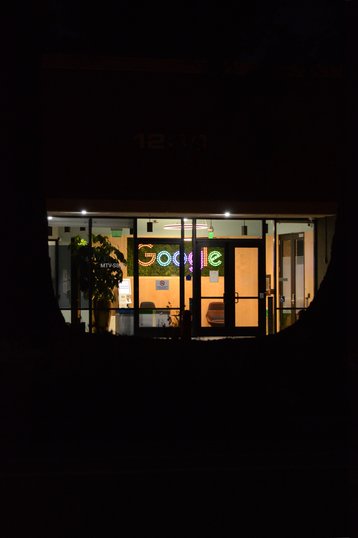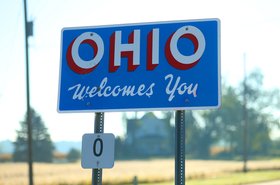Have you heard about the giant technology company that received huge tax breaks from a small community?
If you're a regular DCD reader, you will have known about this controversial practice, taking place for years in multiple states across the US. But for many, their first introduction to the dark art of tax incentives came last year, with the news surrounding Amazon's HQ2.
Now, with the greater awareness caused by Amazon's efforts to secure the best deal for its headquarters, some much-needed scrutiny is being leveled at discreet efforts of other technology giants to gain incentives for their infrastructure investments, including data centers.
Give me a break
Last week, the Washington Post published a story under the headline Google reaped millions in tax breaks as it secretly expanded its real estate footprint across the US, which detailed how the company had operated under the alias Sharka, LLC to secure tax breaks in Midlothian, Texas - a fact that was then picked up by the mainstream media as new information.
Of course, it is not new - we have written extensively about Sharka, Google's other aliases like Jasmine Development and Fireball Group, Facebook's aliases like Raven Northbrook and Stadion, as well as the story of how the social network played two states against each other to secure a deal. Sometimes, these companies buy several lots of land in neighboring areas and wait for the best offer before choosing a site.
To be fair, as proud as we of our reporting on data center tax issues, we are not surprised - we can't expect everyone to care about whether Facebook received a tax break in Los Lunas county.
Or, at least, we couldn't. By making its search for HQ2 a public contest, Amazon sparked a backlash that went beyond the Queens community, with the public questioning why the company run by the world's richest man needed $3bn in subsidies.
On a smaller scale, tax breaks are usually a win-win: the company saves some money, and the small town - usually yet to recover from the Great Recession - gets (a few) jobs, some infrastructure and a marquee company name to try to win further investment.
But for large infrastructure projects, the situation is very different: Google may not have come to Midlothian without those tax incentives, but it had to build somewhere. Hyperscale capex is growing, Google is growing, the needs of the Internet are growing.
If company-specific tax breaks were somehow not allowed, Google, as well as all the other tech giants, would still have to pick somewhere to build their data centers. They would then provide far more money for schools, public transport, and all the other necessities that local taxes pay for.
This is the trick large businesses have managed to keep going: convincing communities that they have to expect less than their dues to prosper, when the reality is the overall net gain for local residents is reduced.
It's hard to know how beneficial a data center is to a community - the size of investment can vary, the power requirements can vary, the water usage can vary, and the tax breaks can vary. Muddying the waters further is the fact that most reports on benefits of data centers are sponsored by the companies that built them, such as this Google-funded report into why Google data centers are great for local economies.
They may be right - in Google's defense, it has a special team that spearheads corporate social responsibility (and mildly self-promotional) initiatives in regions where it has a strong presence, like teaching the local schoolchildren how to code on Chromebooks, and giving out free Wi-Fi.
But, again, the positive impact of data centers - which must be weighed against potential issues such as noise and air pollution, increase in electricity prices, and the use of aquifer water in unknown amounts - would be higher if the tech companies paid the same taxes as other businesses.
Some will say it is unfair to pick on these organizations; they are, after all, simply corporations that are beholden to their shareholders, of course they are going to take whatever steps are necessary to improve their bottom line. "When we enter new communities we use common industry practices," Google spokesperson Katherine Williams told the Washington Post.
This is mostly true - but sometimes, large corporations also influence the political discourse, the way Facebook did when it was caught secretly helping push through a data center tax break law in Utah.
And even if this is just standard industry practice, does that make it okay? Google's now-retired 'don't be evil' slogan was an in-joke, but the company has always styled itself as a corporation that tries to do things differently - even when it doesn't help the bottom line.
Google has led the way on renewable energy investment, and is the largest private renewable energy purchaser in the US. It has helped pass regulations so that non-utility companies could buy renewable energy directly in countries like Taiwan, and has set the bar for how large businesses should approach power purchases.
Imagine if it had the same approach to taxes? Imagine the public infrastructure, education and healthcare improvements that would be possible if companies like Google used their vast lobbying efforts to make race-to-the-bottom fighting between small communities a thing of the past?
It's a naive thought; if the fallout from the 2016 presidential election taught anyone anything, it's that tech companies will do whatever they think they can get away with.
And yet, Russia's asymmetric warfare campaign and the Cambridge Analytica scandal helped make more people aware of what was being done with their data. The HQ2 debacle was by no means as large of a scandal, but one can hope that it, too, will help raise awareness over secretive tax arrangements, and the long-term damage they can cause.
DCD will keep reporting on these stories, with a lot of help from the tragically-underfunded local news publications that serve small communities. We can only hope that the rest of the media remains interested in data centers.





